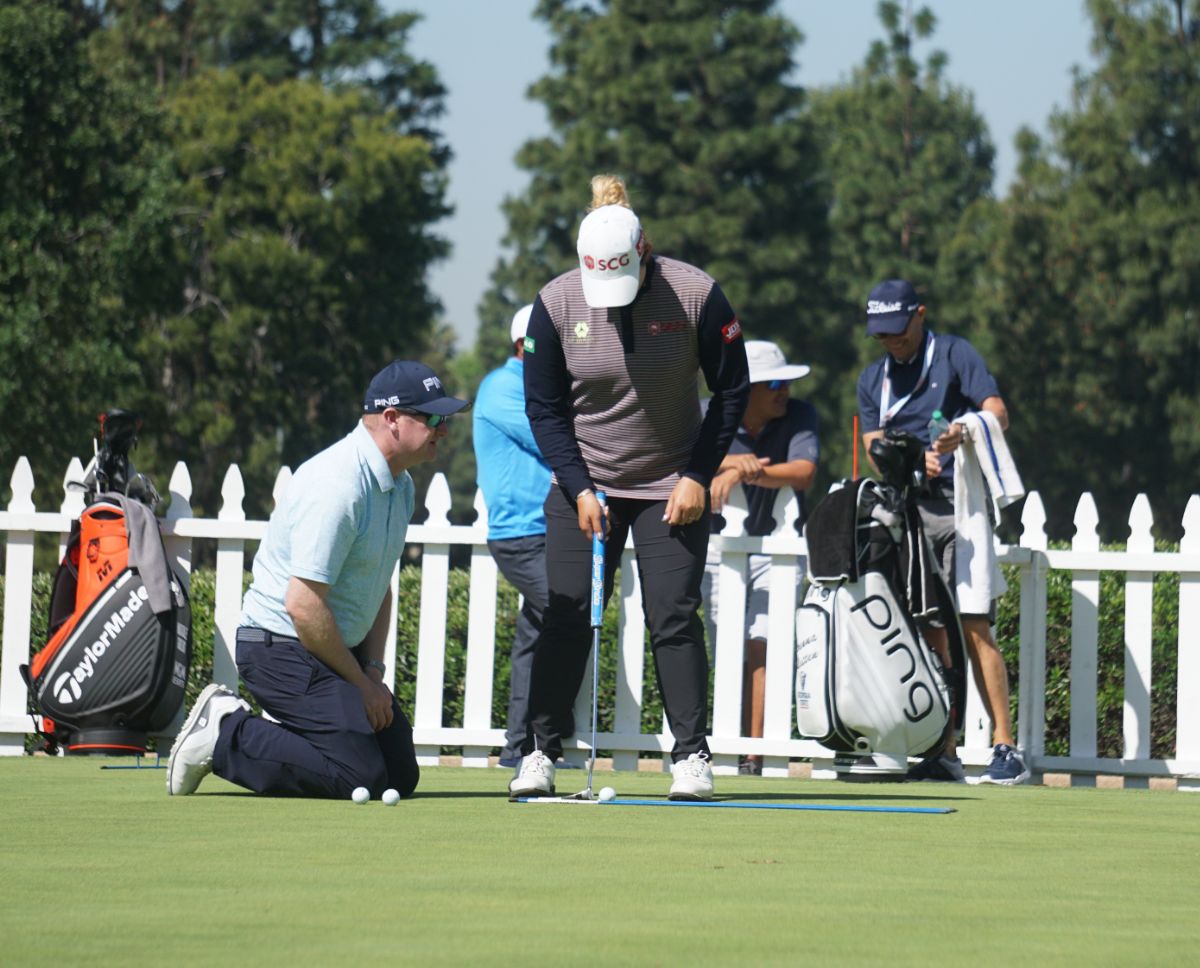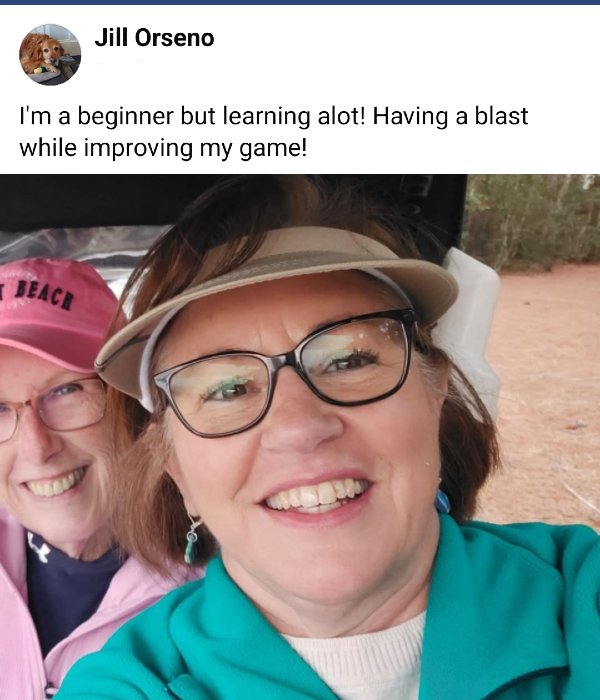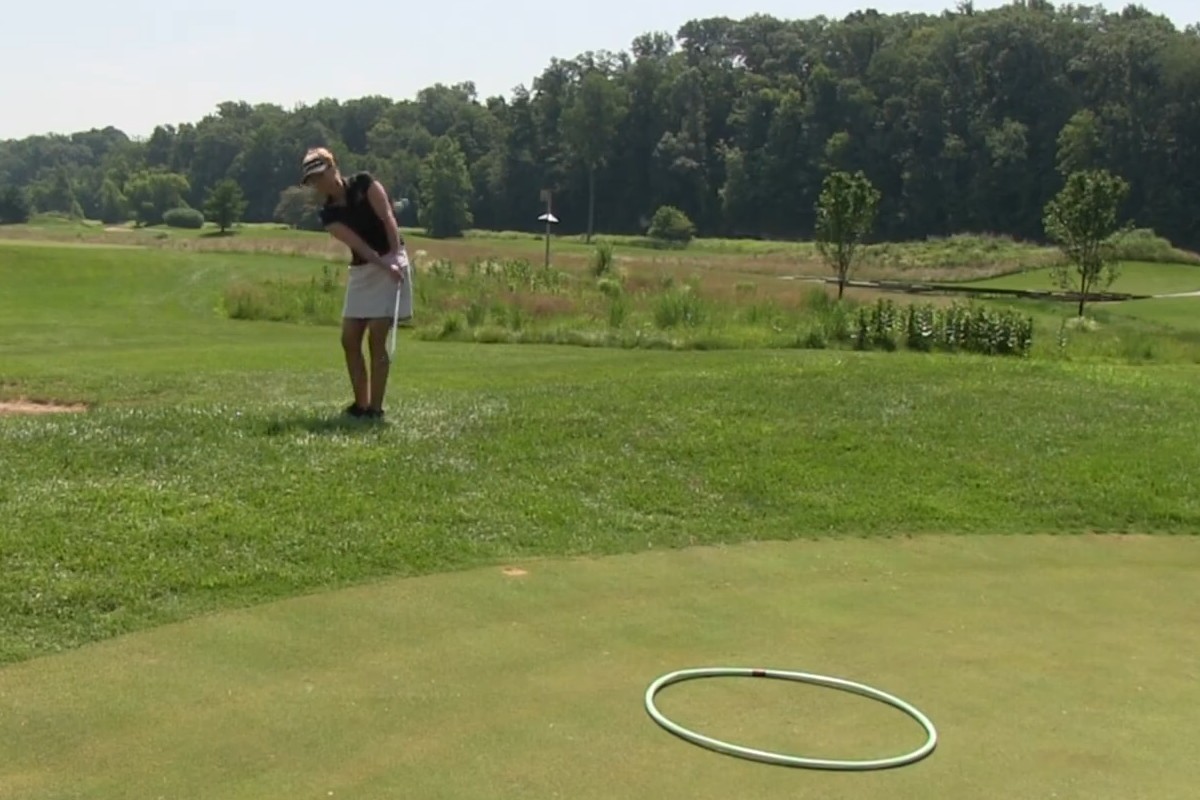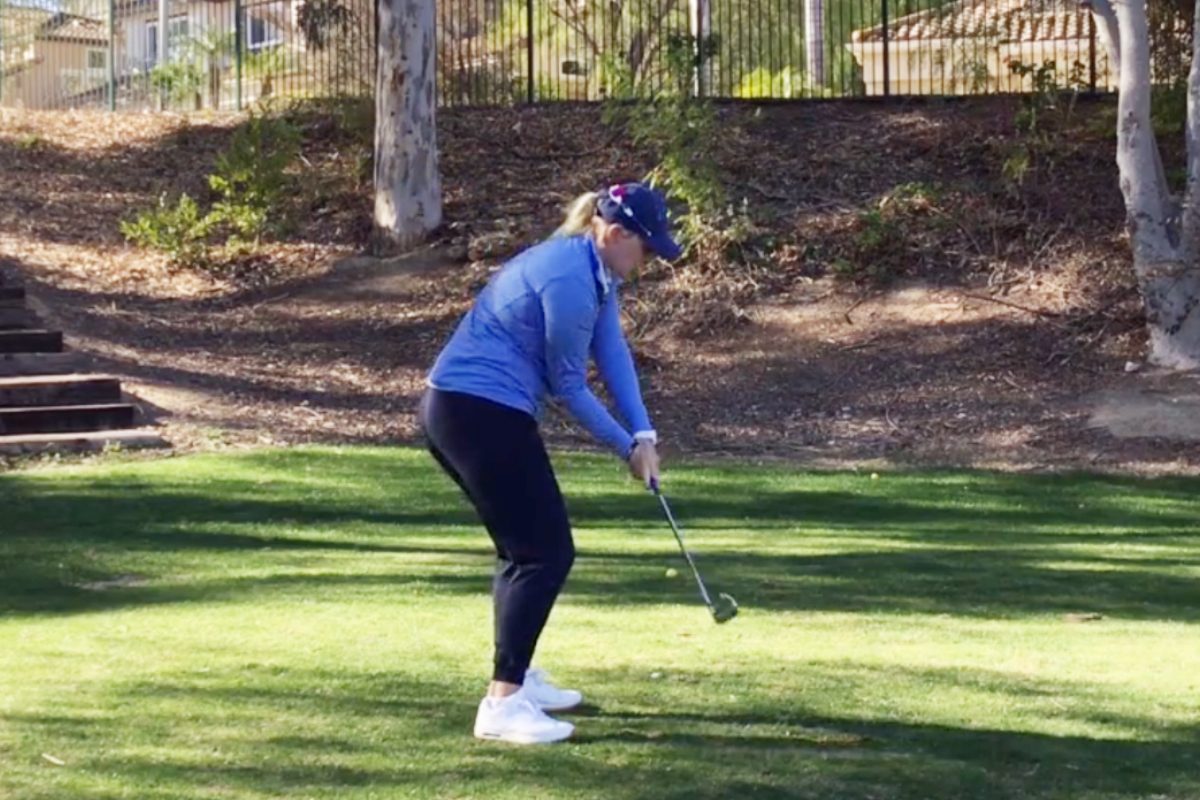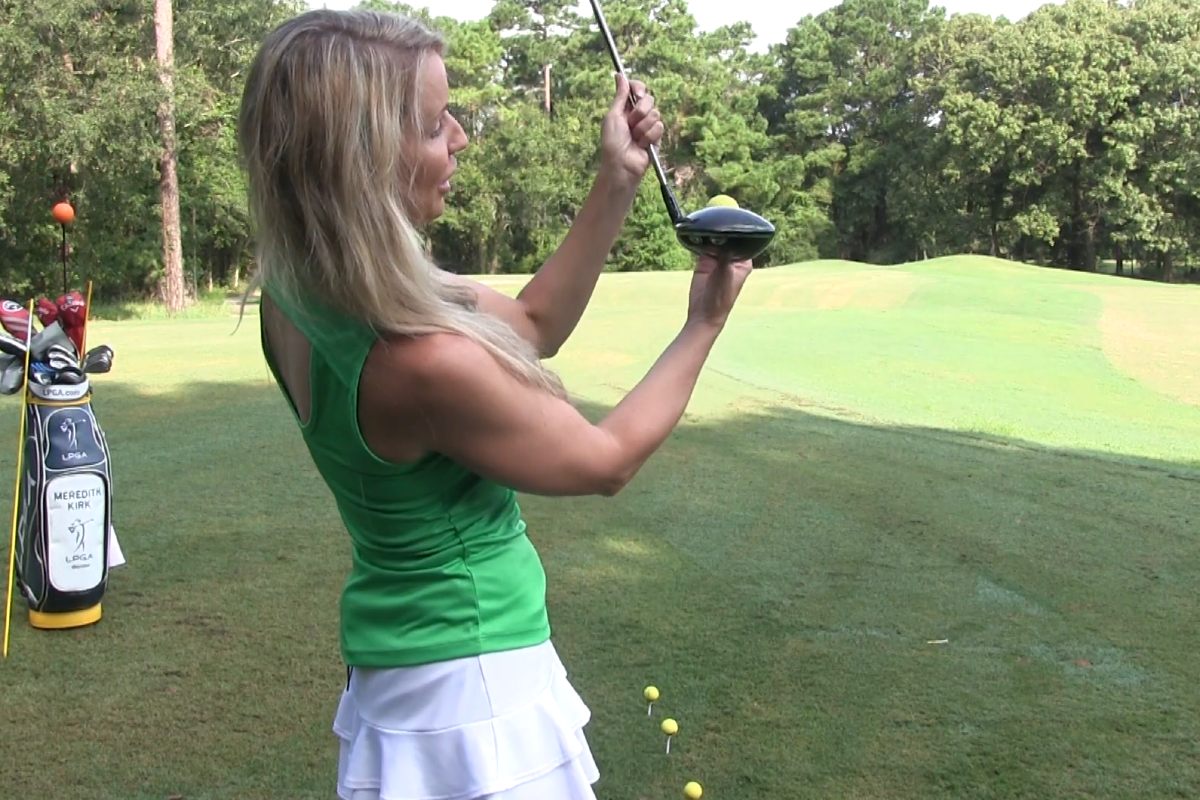Gareth Raflewski is acknowledged as one of the best teachers in golf, and he was awarded the George Knudson Teacher of the Year award at the 2019 PGA of Canada night, a year after winning the same award in 2018. Raflewski is working with some of the biggest names in women’s professional golf, including Ariya Jutanugarn, Moriya Jutanugarn, Lydia Ko, Nelly Korda, and Jin Young Ko, to name a few.
I caught up with Gareth at the 2019 PGA Show in Orlando, Florida. We talked about his start in women’s golf, what separates the Jutanugarns, advice for amateurs, and how parents can best work with their kids, among many other things!
SWITCHING FROM COACHING MEN TO WOMEN
You’re coaching many of the top professionals, especially on the LPGA Tour right now, what has the journey been like for you to get to this point?
It’s been great, I started off with Jane Park in 2014, she was my first LPGA player. Jane had just played an event up in Canada and somebody said, “hey there’s a guy out there doing a lot of teaching with the men. You should try him.” So I happened to meet Jane, and we got on great, and next year on tour Jane doubled her money.
She was already good before I worked with her, but just tidied up a couple of little things, and she did great. And then I started working with her friend, Tiffany Joh. And Tiffany is awesome. Then Moriya Jutanugarn after that, back in 2015. Moriya started playing great, and then Ariya started in early 2016. So it’s kind of cool. I got to see Ariya, she was like 66th in the world when I started with her. So I got to see the rise of the wonderful player that she is now.
Thankfully my players keep getting better every time. So word of mouth grows. And I love working with the women’s game. I used to be 100% on the men’s side, working (with) almost all professionals. Now I’m probably almost 100% on the women’s side. So, it’s a total flip flop.

So this will be your fifth year. What does a typical work year look like schedule-wise for you now? And do you get to a lot of the tournaments?
I probably do about 15 tournaments on the LPGA each year. It’s just so much easier to go there now because everybody’s in one place. Whereas flying here and there and everywhere to try to catch up, it’s just a bit too crazy. But yeah, I do about 15 weeks there. Also, the PGA Show of course and I’ve got weeks where I come to Florida to work with players. And of course, I do a lot of coaching at home in Canada.
WHAT MAKES ARIYA AND MORIYA JUTANUGARN STANDOUTS
Your work with Jutanugarns is very notable, and their short games are obviously among the best in all of golf. What do you think separates them from many other great golfers?
There’s a couple of things you know, they obviously have a great team around them. They’ve got great swing coaches, they’ve got Pia and Lynn from Vision54, and they’ve got me working on their short game. I think sometimes when you only have one coach and they’re doing everything, you can’t really be as effective. And even as a player, I think it’s great to hear different voices. So I think one of the things that was unusual, was that they were learning different things from specialists in that area. Also, the information connects very quickly with Ariya and Moriya and they are able to translate it into actual results.
One thing I’ve definitely noticed with Ariya is she spends very little time over a ball when she’s in the bunker. For instance, the US Women’s Open in 2018, she hit two or three bunker shots in the playoff, and she spent, it seems, hardly any time and she pretty much had tap-ins on each of those. Is that something strategic, something that you work on with her specifically, or is that something you teach?
I think in 2017 we noticed that our stats on our bunker play weren’t good. So we actually went to work on it and that was one of the areas we really improved. So when she gets into the bunker she’s really comfortable and she knows what she wants to do.
Ariya knows how to play the shot, so she doesn’t need to spend any time. I think more people need to be instinctive, and when they see the shot, get up and just hit it. Sometimes you can overanalyze and be over critical and think too much about what you’re trying to do. When, you see it and it’s in your mind, just go ahead. Just trust your instincts, because you’ve had thousands and thousands of shots, and all of those built into memories and you already know how to do it, for the most part. Over analyzing it just makes it more complicated

COMMON MISCONCEPTIONS ABOUT THE SHORT GAME
What do you think are common misconceptions about the short game when it comes to amateurs? What do regular golfers not really get about the short game?
A couple of things. They don’t have a putter that’s built for them. Most people have a putter that is 35 inches long, which the standard putter length but it actually has nothing to do with the person, it has to do the putter fitting perfectly in the bottom of a golf bag. So, when people say oh, I’m standard, that just means that their club fits at the bottom of the golf bag. It has nothing to do with fitting them as a player. Get a putter that fits you. For example, I’m five-nine and I’ve got long arms. I need a 32-inch putter. If I had short arms, I might need a 34-inch putter.
So, we need to have the right length, right lie angle, and we need the wedges to match with the right bounce to do all the right things for us. Fitted equipment is the foundation for any golfer.
THIS SHOULD BE YOUR FIRST SHORT GAME PRIORITY
What’s one thing everyone can start doing today to improve their short game?
I would say, practicing basic chips. Forget about the big flops. Forget about hitting a ton of bunker shots. Just go from the fringe and just chip seven, eight, nine-yard chips. Get really good at making good contact, trying to land at a certain spot, and then build out from there.
NOT JUST GOLF – ENCOURAGING YOUR JUNIOR GOLFER
Women’s and girls golf is growing more and more. And I think the LPGA and its global presence seems to be really making a difference. How can parents be the most supportive when their daughters are just starting to play?
I think, just let them go play golf. I think sometimes, as a parent, always trying to do your best for your child, you’re always trying to give them as many opportunities, you know? Sometimes I think they’re almost overexposed to tournaments and travel and everything. I think they could wind it back a little and let them have a normal childhood, but give them plenty of opportunities to go ahead and just play, and mess around themselves.
Probably the biggest thing is not to specialize too early. Make sure that you’re doing other sports not just golf. If you’re up in the North, give up the golf clubs for a couple of months in winter. When you practice, hit balls maybe once a week, or once every couple of weeks, but go do something else. I think it makes you a more well-rounded individual and athlete.
That kind of leads to my next question. There are some young kids that are very talented. What’s the most important thing a parent or coach can do in those situations, where it’s obvious that there may be a really bright future for them in golf. Similar thoughts here?
Yes, I think it’s the same thing. Encourage them to be well rounded and encourage them to do other things that will help them mentally as they mature? I think that includes getting involved in groups and team sports. Just to make them a bit more social, make their interactions a little easier, make their growing up a little easier.
It all helps them make better choices when they get older. Because, ultimately, when you’re a good player, it’s about becoming a good decision maker. And you need the experience to become a good decision maker. Parents need to give their children as much experience, including away from golf, to make them become more well rounded.

30 MINUTES TO PRACTICE ON THE GREEN … WHAT TO DO
If you only have 30 minutes to practice, what do you work on?
Lag putting. So I think speed control is probably the biggest thing that people don’t work on when they’re putting. it causes so many three-putts and with a little bit of practice, you can get your speed right. If you consider that the average player has three 3-putts a round, if they can get their speed down, maybe make the odd one and don’t three-putt, then there are three or four shots they’ve saved from a round. That’s a really easy way to get rid of (extra shots).
What are you looking forward to over the rest of the 2019 LPGA season?
I have a phenomenal group of players, and I’m excited to see, all of them, to see what they can do. Because I see so much potential in all of them. Whether that’s Ariya, I think she can do even more than she’s done before. Or Austin Ernst. I think Austin can go and win multiple times. I also think Moriya and Lydia will win.
Some of my other players, that maybe are further down the field, I think they can move up from maybe 80th on the Tour, up into the top 30s and 40s. So much potential – I’m just excited to see the players grow and get better. The wins are going to be the wins, you can’t get too excited about that. But I’m more excited to see the player grow and get better. As long as I see that, I’ll be really happy.

